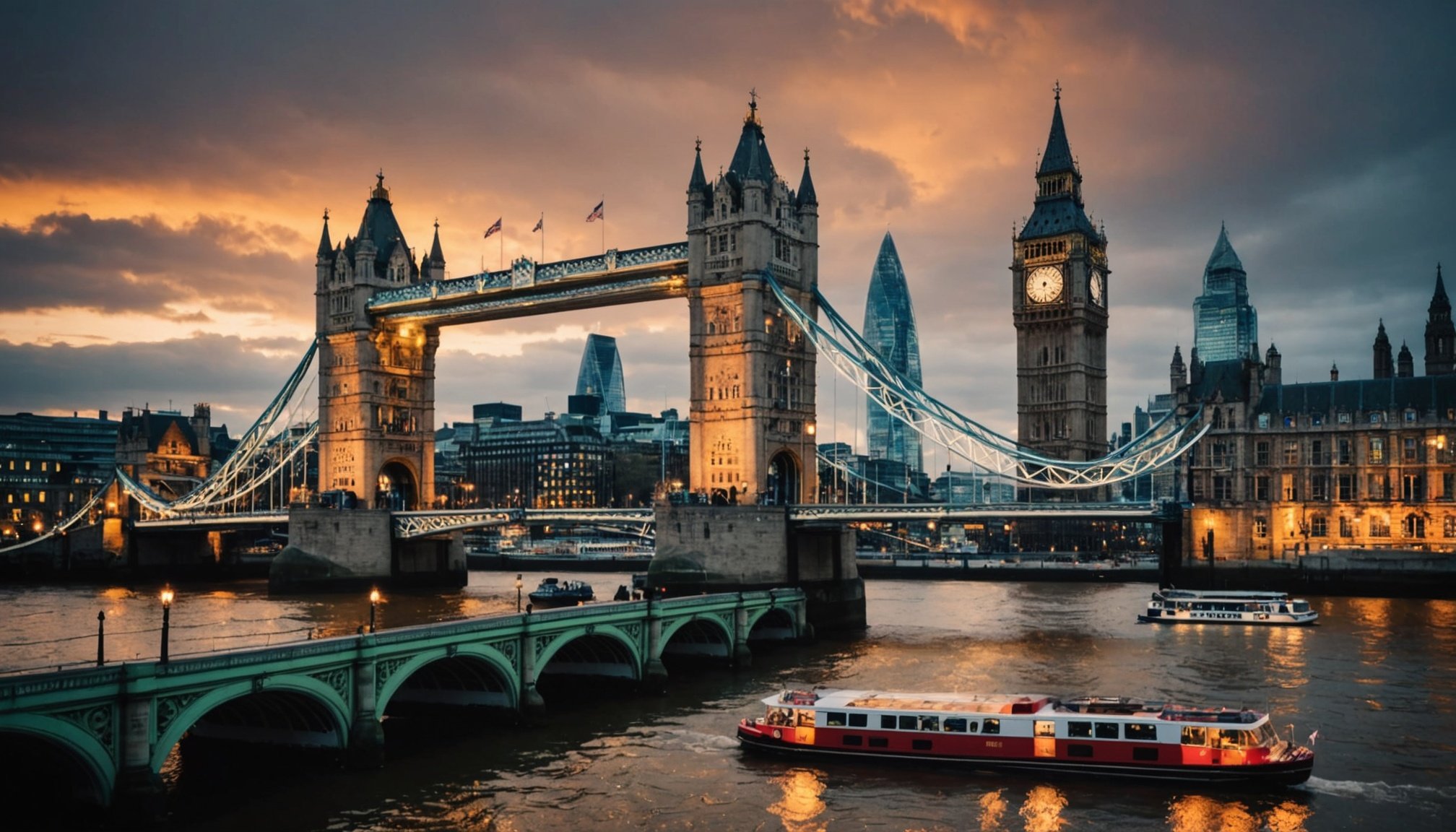Understanding Negative Publicity in the Hotel Industry
Negative publicity can significantly impact the hotel industry, often arising from guest complaints, poor service experiences, or even incidents beyond a hotel’s control. In an industry where reputation is paramount, maintaining a positive public image is crucial, particularly in bustling and competitive areas like London.
London hotels face unique challenges when it comes to handling negative publicity. With the high volume of international visitors and the city’s status as a global hub, even minor incidents can quickly escalate. The hotel industry challenges here are exacerbated by the need to cater to diverse cultural expectations and the sheer scale of operations. Negative reviews or adverse media coverage can quickly dissuade potential guests from booking, hitting revenues and occupancy rates hard.
In parallel : Innovative Waste Reduction and Sustainability Blueprint for Sheffield’s Manufacturing Industry: An All-Inclusive Guide
The impact of negative publicity extends to the long-term perception of a hotel. Once negativity is associated with a brand, it can affect not only immediate bookings but also influence future decisions by potential guests. Therefore, it is essential for hotels to swiftly address issues, whether through service improvements or targeted reputation management campaigns, to mitigate these effects and maintain guest confidence and loyalty.
Proven Tactics for Countering Negative Publicity
In addressing negative publicity within the hotel industry, developing a proactive reputation management strategy is vital. A hotel must anticipate potential challenges and have a plan ready. This prevents small issues from escalating into major crises. Crisis communication plays a crucial role in this strategy. Timely and transparent communication helps manage public perception effectively. Offering clear, concise information reduces speculation and demonstrates accountability.
In parallel : Maximize Your Cardiff Fitness Center’s Reach: Proven Social Media Strategies to Skyrocket Engagement
To handle negative feedback, it’s essential for hotels to publicly address and rectify issues swiftly. Steps could include an honest acknowledgment, followed by corrective measures. Such actions reassure guests that their concerns are taken seriously.
Moreover, fostering transparency encourages trust and credibility, essential elements for maintaining a positive reputation. Engaging with media and utilizing social platforms efficiently also form part of an effective response.
Communication isn’t just about reacting but also about building an ongoing dialogue with guests and stakeholders. This helps in addressing criticisms constructively and showcases a commitment to improvement.
By combining these elements, hotels can effectively manage their public image, ensuring that any negative perceptions are swiftly countered and confidence in their brand is restored.
Case Studies of Successful Recoveries
In the hotel industry, recovery strategies are crucial for overcoming negative publicity. Real-world hotel case studies showcase how effective tactics can turn around adverse situations.
Case Study: Improving Guest Relations
One London hotel faced intense scrutiny due to service delays. They systematically improved guest relations by introducing personalised check-ins and proactive guest follow-ups. These measures were coupled with training programmes that focused on enhancing staff interactions. The result was a noticeable uplift in guest satisfaction scores and positive reviews.
Case Study: Successful Social Media Management
Another hotel encountered a backlash due to mishandled social media communications. Employing recovery strategies, they reoriented their online presence, engaging directly with dissatisfied guests and swiftly addressing concerns publicly. This approach not only repaired their reputation but also cultivated community trust through transparency.
Case Study: Leveraging PR to Shift Perceptions
A hotel struck with negative headlines leaned on strategic PR initiatives to shift perceptions. By hosting high-profile events and engaging local influencers, they reinforced their brand image positively. These key strategies demonstrated resilience and adaptability, subsequently leading to fuller bookings and a stronger market presence.
These key strategies exemplify how hotels can address challenges and restore confidence.
Tailoring Strategies for London Hotels
Understanding local strategies is vital for hotels in the vibrant city of London, where the hospitality industry faces distinctive challenges. The diversity and expectations of London’s international clientele necessitate customization for London hotels. Addressing these demands effectively can turn potential negative publicity into opportunities for growth.
One strategy involves incorporating local cultural elements in offerings, enabling hotels to connect meaningfully with guests. For instance, featuring local art or hosting regional events can create a unique experience that resonates with both international visitors and locals alike.
Furthermore, creative approaches specifically suited to London’s ever-evolving landscape are necessary. This includes flexible booking policies to accommodate varying visitor schedules and innovative services that cater to the city’s fast-paced environment. Engaging with local trends and issues ensures hotels remain relevant and appealing.
Lastly, leveraging solidarity with the community by participating in local initiatives benefits both the hotel and the neighbourhood, fostering goodwill and positive word-of-mouth. This alignment with community values is crucial in cultivating a loyal, local guest base and reinforcing positive perceptions. By implementing these thoughtful strategies, London’s hotels can thrive, even amid potential adversity.
Strategies for Effective Communication
In the hotel industry, where maintaining a positive image is vital, implementing strategic communication strategies is key to navigating negative scenarios. Crafting the right message tailored to different audiences is crucial. It’s not just about what you say, but how you say it, ensuring clarity and empathy. Effective messaging requires understanding audience expectations and adapting tone accordingly to avoid misunderstandings.
Audience engagement is enhanced by utilizing various communication channels effectively. Digital platforms like social media and email newsletters allow hotels to reach broad audiences quickly and facilitate direct interaction with guests. Each platform has its nuances; choosing the right one for specific messages ensures a more accurate delivery.
Engaging with guests and stakeholders helps rebuild trust. Regular updates and prompt responses to queries demonstrate transparency and commitment—a proactive approach reduces chances of misinformation taking hold. Encouraging open dialogue and addressing concerns directly fosters a positive rapport, crucial for maintaining credibility.
By integrating these communication strategies, hotels can manage their public image more effectively. This approach not only mitigates the effects of negative publicity but also strengthens long-term relationships with guests and stakeholders.
Tools for Reputation Management
In the hotel industry, effectively managing reputation is paramount, and leveraging the right reputation tools can make all the difference. These tools help monitor and respond to feedback in real-time, offering essential insights into guest sentiments.
Effective Monitoring Software
Integrating sophisticated monitoring systems allows hotels to track mentions and reviews across multiple platforms, facilitating swift responses to guest feedback. These systems alert management to potential issues before they escalate, enabling timely interventions.
Review Management Platforms
Review management platforms serve as a central hub for collating and analysing guest reviews. They streamline the process of responding to both positive and negative feedback, ensuring guests feel heard and valued. By aggregating reviews, hotels can discern patterns and address recurring concerns.
Analytics for Understanding Guest Sentiment
Utilising analytics tools enhances a hotel’s ability to understand guest sentiment. These tools offer detailed reports on guest feedback, providing actionable insights that can guide service improvements. Case studies highlight their impact, showcasing trends in guest satisfaction and pinpointing areas for development.
By adopting these tools, hotels not only enhance their reputation but also build a stronger connection with their guests, fostering a culture of continuous improvement.
Leveraging Positive Reviews
Incorporating positive reviews effectively into a hotel’s strategy is essential for maintaining a strong market presence. Encouraging guests to share their delightful experiences can be a powerful tool for enhancing a hotel’s public image and attracting new visitors.
Hotels can strategise the management of guest feedback by actively soliciting reviews through personalised follow-up emails post-stay, or by offering small incentives. This approach not only increases the volume of positive feedback but also helps identify areas that are performing well.
To showcase positive feedback, hotels can highlight glowing reviews on their websites, social media pages, and marketing materials. This practice not only validates the quality of service but also builds potential guests’ confidence.
Integrating positive narratives into marketing efforts is beneficial. Positive customer stories can be shared in newsletters or incorporated into promotional campaigns, serving as authentic endorsements.
By actively curating and promoting positive experiences, hotels can reinforce their reputation and distinguish themselves in a competitive market. Demonstrating consistent guest satisfaction through these strategies ensures long-term success and guest loyalty.











